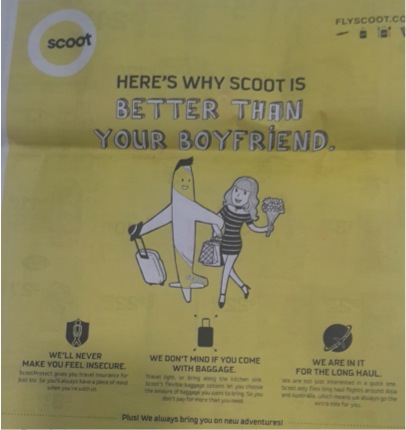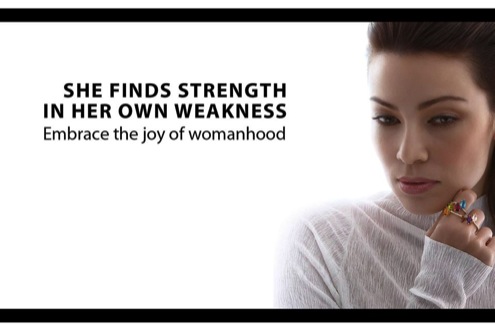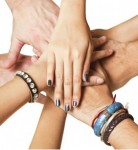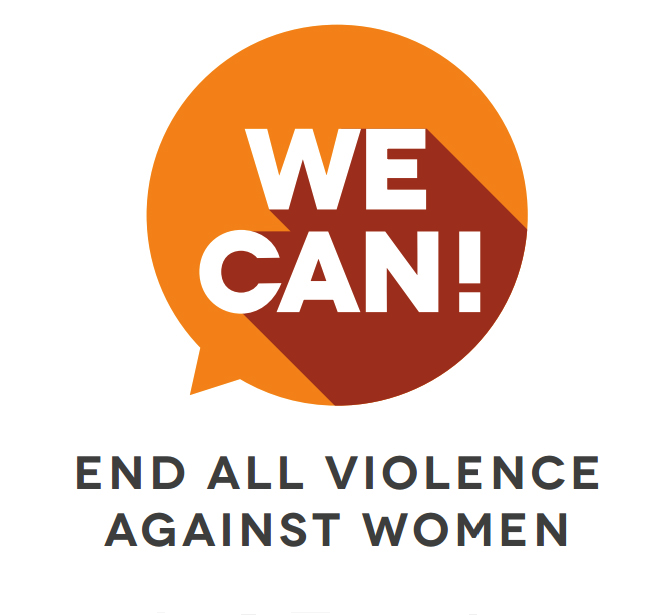AWAREs annual Alamak! Award is back, “honouring” the most jaw-dropping instance of sexism over the past year.
Everyday, we see and hear comments, advertisements and policies that perpetuate gender stereotypes and sexist attitudes. In response, AWARE created the Alamak! Award, an annual search for the the most annoying, you-have-got-to-be-kidding-me instance of sexism in Singapore.
The four nominees this year were submitted by AWARE members and the public, and shortlisted by AWARE. Now, it’s up to you to choose a “winner”! Which do you think is the worst? Read the descriptions below, and vote for the most Alamak!-worthy moment below! Voting closes on 18 August!
[17 July 2014, edited to add: ALAMAK! Everyone is only supposed to get two votes, but we looked into our system and found that there were some users who were somehow casting over 10 votes each. We have removed the following ‘hacked’ votes:
Suresh Damodara – 481
Scoot Airline – 483
Dr Lim Tit Meng – 142
Goldheart Jewellery – 0
Come on, folks. This is meant to reflect public opinion. It’s not right to set out to skew the results. Play fair, OK? Any more fishy business will also be investigated and corrected.]
Update on 18 August: Voting is now closed. The winner of the Alamak! Award 2014 will be announced at the Crystal Ball on 25 August.
Meet our nominees….
Suresh Damodara, Insensitive Defence Lawyer
What can lessen the trauma that victims of rape face? According to criminal defence lawyer Suresh Damodara, being drugged against their wishes helps!
Mr Damodaras client, serial rapist Azuar Ahamad, sexually assaulted 22 women in 10 months. Seeking to reduce his sentence, Mr Damodara argued that these women did not suffer the usual trauma of rape because they were unconscious when the assault took place having been drugged by the rapist.
This incredibly insensitive argument didnt work his client was sentenced to 37 and a half years in jail. And rightly so! But to Mr Damodaras comments, we say Alamak!
Scoot is definitely not better than your girlfriend or your boyfriend, either
Get a budget flight and sexist stereotypes all for the price of one ticket on Scoot!

Scoot thinks its better than your girlfriend. Why? Because it knows when to be quiet, when to give you space, and can handle all your crap. Plus, it always spares a thought for your wallet!
This is, of course, as opposed to all the needy, selfish girlfriends who just cant stop talking or spending their boyfriends money.

Perhaps Scoot thinks gender equality means applying insulting gendered clichés to all, because a recent ad declares Scoot to be better than your boyfriend, too. Scoot will never make you feel insecure, doesnt mind if you come with baggage, and is in it for the long haul. So all you unresponsive, commitment-phobic men, watch out! Scoot is swooping in to steal away your needy, complicated girlfriends.
Tired, sexist, boring this stereotype-driven marketing is stale. All together now: Alamak!
Dr Lim Tit Meng Chief Executive, Singapore Science Centre

What would you like to hear from your boss on International Womens Day? An encouraging note affirming your organisations belief in gender equality would be good. How about a promise to improve womens representation in management?
Sadly, what the employees of Science Centre Singapore received this year however, was an email from Chief Executive Dr Lim Tit Meng, an Associate Professor of Biology, including the following line:
“I have my reasons why not many women can have the stature to hold the highest position. One of them is simply about the complex nature of women which challenges them with communication barriers in even understanding their own gender well, let alone having to compete or co-labour with the men at work.” (See the full text of the email here)
Got it, women? Your complex nature doesnt allow you to communicate well, and you dont even understand yourself! How will you ever work with, or, horror or horrors, compete with men?!
Let Dr Lim know that such comments from the chief executive of any organisation are unacceptable! He is responsible for creating a good work environment and supporting the career development of all employees not just that of men!
Note: This email was forwarded to AWARE anonymously by an employee of the Science Centre who felt belittled by this email from her boss. It made her feel her hard work was of little value. We are choosing to publish this email since the Science Centre is a public organisation a statutory board under the Ministry of Education and the chief executive of such an organisation must be held to high standards.
Celebrating the joy of womanhood in weakness
Next in the line of sexist International Womens Day messages: Goldheart Jewellery wants women to embrace the joy of womanhood where womanhood, and female strength, are apparently found in our universal weakness for diamonds and gold.

An accompanying message on Goldhearts Facebook page said, There may be challenging days but always remember that you are a woman who finds strength in her weakness. Remember, women, its shiny trinkets that define your gender and gives you strength!
—
 你是否因为离婚而感到孤单与无助,甚至觉得似乎是自己一个人在面对离婚所带来的冲击与挣扎?
你是否因为离婚而感到孤单与无助,甚至觉得似乎是自己一个人在面对离婚所带来的冲击与挣扎?










 Teachers and other authority figures occupy positions of power which can be misused. Even where the young people concerned are not technically minors, the power imbalance in the teaching or mentorship dynamic can enable exploitative and abusive behaviour.
Teachers and other authority figures occupy positions of power which can be misused. Even where the young people concerned are not technically minors, the power imbalance in the teaching or mentorship dynamic can enable exploitative and abusive behaviour.

